(July 20, 2022) Thirty minutes into the conversation with Bhargav Sri Prakash, I ask him, “Have you read Dr Joseph Murphy’s The Power of Your Subconscious Mind? Digital vaccine sounds a lot like it, but with the twist of technology. Essentially, it involves changing the physiology of the body with the help of the mind or brain – by using virtual reality and AI.” San Francisco-based biomedical tech entrepreneur quips in excitement, “That’s the simplest way of putting it. The brain is a muscle we can constantly work on, and can make it do wonders.” This notion of creating a wonder led Bhargav to create the world’s first digital vaccine for which his company FriendsLearn was granted a patent by the US Patent and Trademarks Office in June this year.
Vaccinating a child for polio, jaundice and other ailments is a norm across the world, but digitally vaccinating children is a first for everyone who has come across Bhargav or his concept. So what exactly is a digital vaccine? “Simply put, we change the physiology of the brain by stimulating the body’s immune system through AI and virtual reality. We non-invasively induce a neural response by directing blood flow to a particular part of the brain. Digital vaccines work by stimulating the brain-gut immune system at the cellular biomarker level to lower the risk of diseases like hypertension, diabetes, cancer, and obesity,” Bhargav tells Global Indian. For him, the pandemic has been a blessing in disguise as “people are now investing in vaccines.”
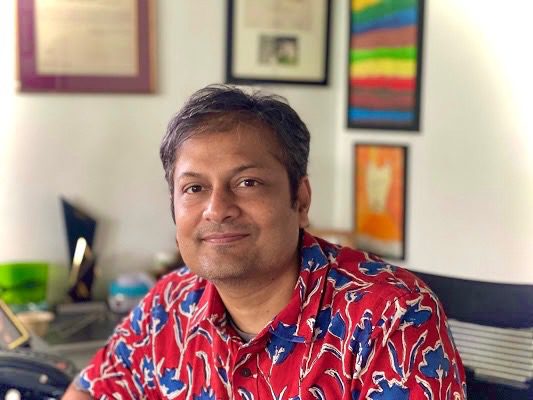
Bhargav Sri Prakash is the founder of FriendsLearn.
It took his bio and health tech startup FriendsLearn 12 years to bring the technology to the world, but Bhargav is happy that now with the first digital vaccine patent, things are moving at a fast pace. “Pandemic has made vaccine technology super exciting. A neurocognitive vaccine is right for the next level, and we have already safely digitally vaccinated over 600,000 children through our platform. We are now working on Covid-19 prevention for which randomised controlled trials are underway in Chennai,” he adds.
Chennai to Michigan – the first flight towards a new life
It was at the dawn of the 80s that Chennai became Bhargav’s playground while growing up. If he immersed himself in his studies, he also played tennis – a sport he had a love affair with for decades. “I played for the state, national and international level, representing India. I began my career as a professional tennis player,” he beams. But after finishing his undergrad in Mechanical Engineering from College of Engineering, Guindy, Anna University, he shifted gears towards Automotive Engineering. “Racing cars was my other passion, and I loved spending time at the Sriperumbudur racing track. I was an amateur racer who was fascinated by motorsport history.” This led him to the University of Michigan Ann Arbor on a research fellowship, a place he calls the “mecca of the automotive industry.”
His research in advanced computation and powertrain simulation in grad school was incubated at the Business School at the University of Michigan in 1999, and at the age of 21, he became an entrepreneur with his first company CADcorporation. “I signed up for a finance class for entrepreneurs called ‘From Idea to IPO in 14 weeks’, and that changed my life. During the class, I realised that I can turn my research into a company, and that’s exactly what I did.”
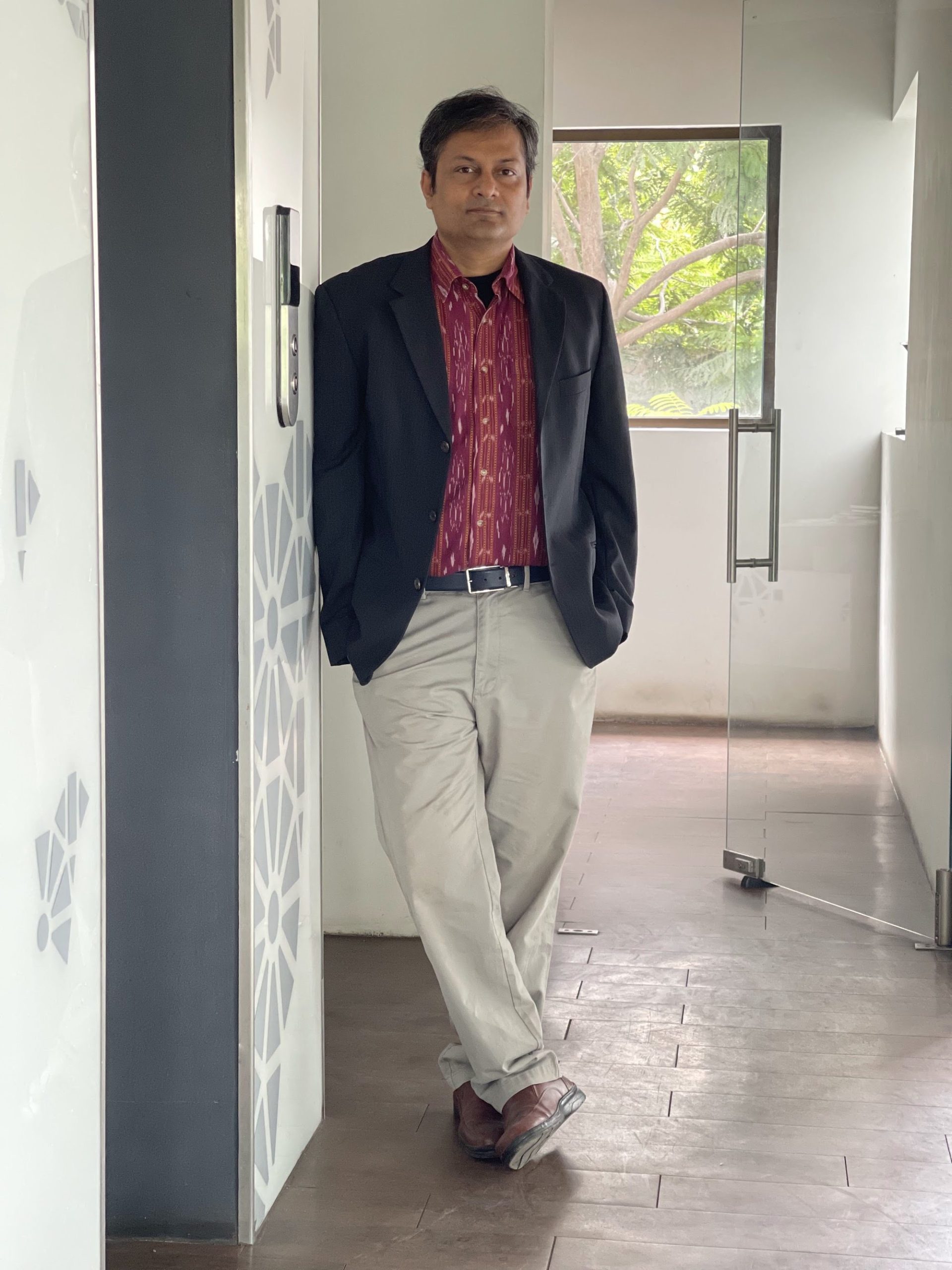
Raised by entrepreneur parents, he understood the ups and downs of starting a business. His mother is the world-famous architect Sheila Sri Prakash, while his father was a chemical engineer who started a business in the sanitation infrastructure space. “While my father’s business folded after taking off initially, I saw my mother prodding. I had the benefit of seeing my parents manoeuvre through entrepreneurship and understood the pros and cons of doing so. When the opportunity came to me in the US, I jumped at it.”
In 2005, Bhargav sold off CADcorporation and ventured into the education space with Vmerse. “We were making virtual reality programs for universities in the US, where we were taking the campus to the first-generation immigrants who had no idea about the workings of a university. When I came to the US, I had no idea about the weather or location, I was flying blind. But we wanted such students to get acquainted with the university through virtual reality. Think of it as the metaverse of the mid-2000s.” Bhargav explains that one could create an avatar, and get to explore the university in the virtual world. “It was a simulation of what happens in the real world. The seasons changed, we even had squirrels running on the campus. That’s how photo-realistic it was,” he adds. After selling Vmerse in 2009, he dabbled in the field of investment for a few years.
Foray into digital therapeutics, thanks to his daughter
The birth of his first daughter tilted the axis for him. “It was a wake-up call on many levels. I got to see the world through her eyes.” Calling the US a “land of processed food where everything either comes out of a can or a packet”, he saw his baby daughter was getting influenced by the advertising of processed food and how it was weakening her immune system. “I realised technology was used by children even before they could speak, and it was affecting their choices at such a tender age. Because of this she had food-borne allergies and soon developed asthma. That’s when it dawned on me that it’s a case of capitalism gone mad. The profit we make from sickness is insane and it has to stop.” This epiphany led to the revelation that the focus is mostly on treatment and not prevention. That’s when his attention shifted to vaccines, which he calls “the bright spot in medicine.” Impressed by vaccines’ efficacy to eliminate polio from India and smallpox from the world, he started to think “how we can use technology to create a vaccine for the future.”

Children in the US using Fooya app. (Photo credit: FriendsLearn)
As if the cosmos was listening, he was invited to be a fellow at the Kauffman Foundation in 2010 where he met Dr Amanda Bruce, a neuroscientist who was doing pioneering work in fMRI (Functional Magnetic Resonance Imaging) studies on children. “Based on neuroplasticity (the brain’s ability to change and adapt in response to experience), we realised that during the formative years, a child’s brain is developing fast, and it’s the best time to strengthen their brain in a specific way that keeps them healthy and prevents diseases. That’s how we came up with digital vaccines.” With the help of virtual reality and artificial intelligence, digital vaccines stimulate the body’s immune system. “We stimulate the brain through a gamified experience and use the power of self-healing through neurocognitive training. We understand the power of the subconscious mind, and how it helps in changing the physiology of the body and keep diseases at bay,” says the man who read the Vedas at Skandasramam while growing up, and understood with clarity that, “Brain and gut are connected.”
The workings of digital vaccine
Bhargav explains that with the help of the mobile app Fooya (available on Android and iOS), a child gets to create an avatar. “The gamified content neuro cognitively trains the child to make healthier choices, which leads to its transference in the real world. In simple words, when the avatar makes healthier choices and as a result, something good happens to them in the metaverse, their brain lights up in a certain way and due to the neural response, they end up replicating the result in real life too. The child experiences the consequences of the action. Since they are so absorbed in the maya (illusory world) during such experiences, the experiences speak to them on the subconscious level,” he shares. This impacts the blood parameters, and over a period of time, biomarkers like blood sugar and cholesterol level begin to change.
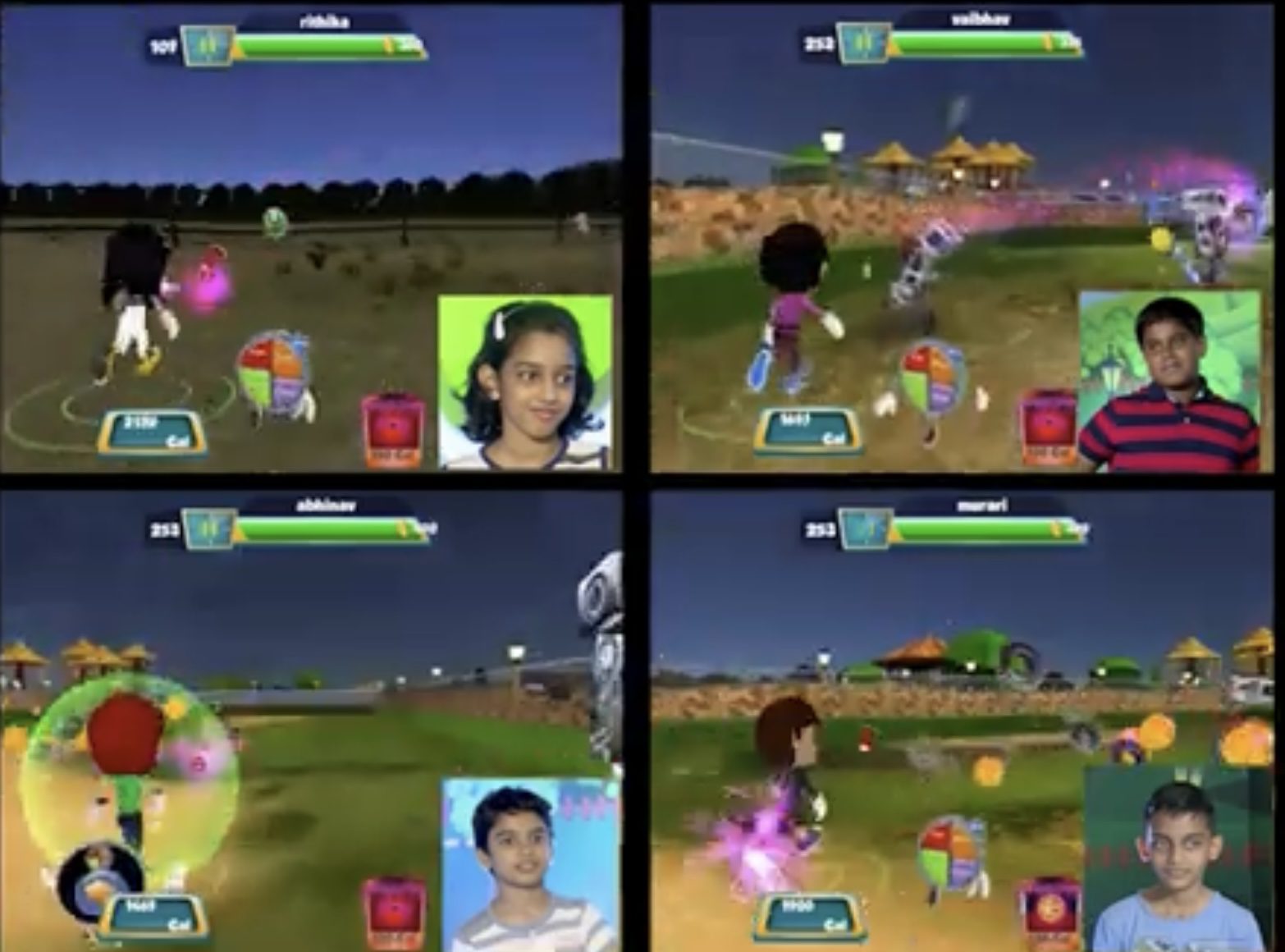
The avatars of children created in the metaverse on Fooya app. (Photo credit: FriendsLearn)
The challenges and future path
Dipping his toes into the world of digital therapeutics wasn’t easy. The last 12 years have been challenging for FriendsLearn and Bhargav as they had to justify the risks, the safety, the efficacy, the right dosage, and its purpose at every step. “Since it’s a gamified experience, we were questioned over the child’s screen time, radiation, retinal damage, and sedentary behaviour. We backed it up with many studies, and had to prove that the benefits will outweigh the risks,” says Bhargav who conducted five randomised controlled trials in 12 years with the help of the Digital Vaccine Project at the Heinz College of Information Systems & Public Policy at Carnegie Mellon University, under the guidance of Dr Rema Padman, a Trustees Professor at the Heinz College of Information Systems & Public Policy. “When we started, we faced tremendous skepticism, and we had to prove it with science and data,” who says half an hour to 45 minutes of screen time (dosage) a week for six months is enough to lower the risk of disease in children.
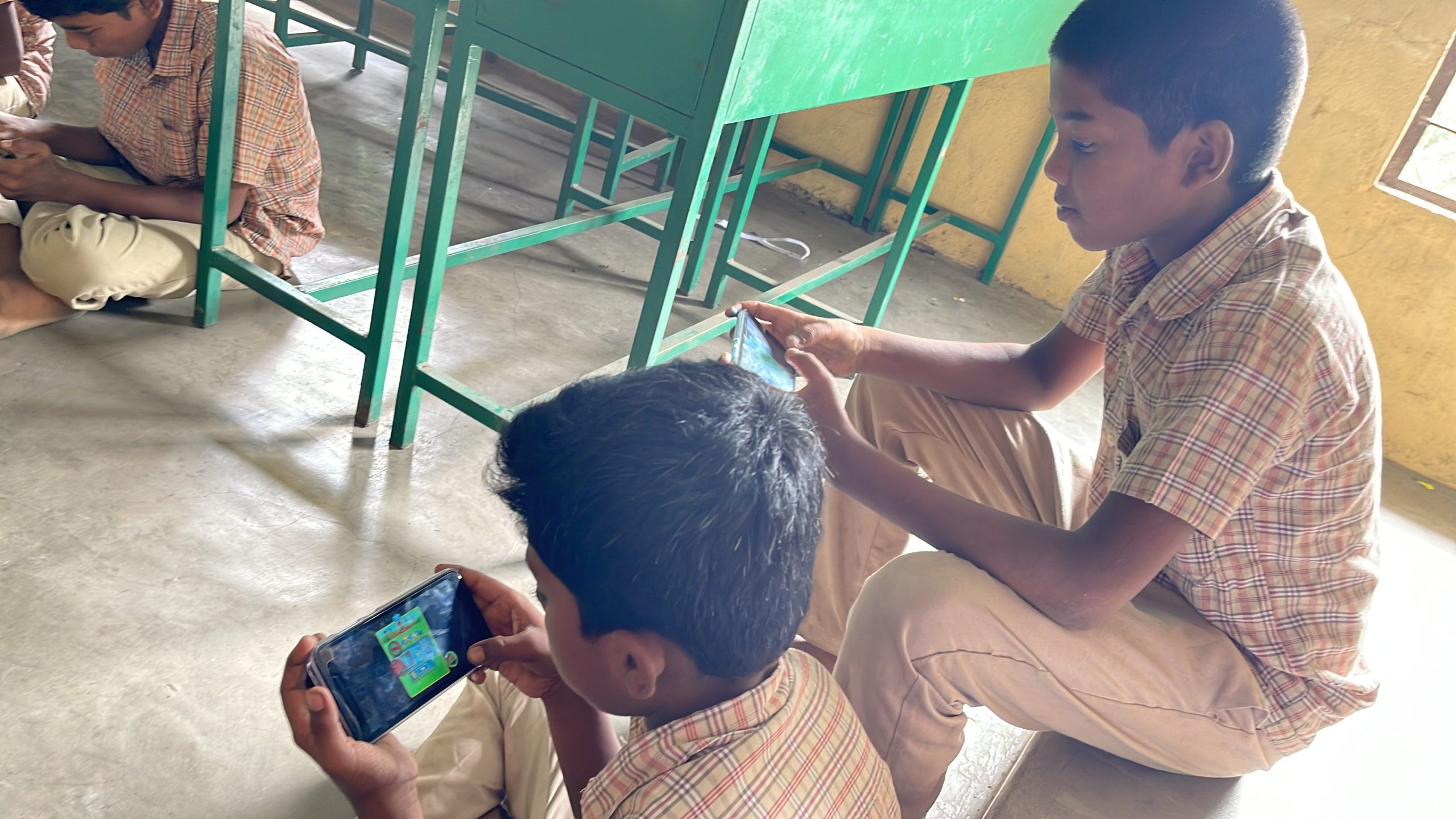
Children using Fooya app at one of the partner schools of FriendsLearn in India. (Photo credit: FriendsLearn)
Ramayya Krishnan, the dean of Carnegie Mellon University, adds that CMU is committed to understanding the implications of technology for humanity through various innovations, including digital vaccine. “The inter disciplinary and multi institutional collaborative scientific approach, led by Dr Rema Padman, has enabled rigorous clinical and field trials over nearly a decade, in the US, India, Singapore, and Botswana, in partnership with local investigators at renowned institutions. Based on emerging case studies of success of the digital vaccine in India, there is tremendous potential to globally preempt US levels of unsustainable per capita cost of healthcare.”
Having conducted randomised trials in India in 2018-19 in collaboration with schools, Bhargav saw the “blood sugar number improve and cholesterol number among kids improve.” Currently in Chennai to supervise the trials for Covid-19 prevention vaccine at VHS, he is hopeful that they would be able to “analyse and publish the report by the year-end.” Already a success among kids in the US, the digital vaccine is so far in use for kids of American International Schools. “We have also collaborated with a handful of private schools. We plan to roll it out as part of the school curriculum. It’s a novel pathway as I think there is a big need for an evidence-based curriculum,” says the father of three, who loves unwinding by playing tennis and meditating. But it is travel that keeps him inspired. “Currently, I am in India and have been exploring Coorg and Kanyakumari,” says Bhargav whose company has secured funding to undertake a landmark diabetes digital vaccine trial with University of Pittsburgh Medical Center Children’s Hospital of Pittsburgh.
An engineer, investor, and entrepreneur, Bhargav dived into the digital therapeutics space because he wanted to make a difference. “When I started, I had no credibility as I wasn’t an academician. Creating a vaccine with software sounded crazy, and frankly, medical science wasn’t ready. But I pushed on. It took us 12 years but here we are,” he signs off.
(Prospective schools interested to apply to become a recognised school health partner of the Digital Vaccine Project at Carnegie Mellon University. Click here for online application form)


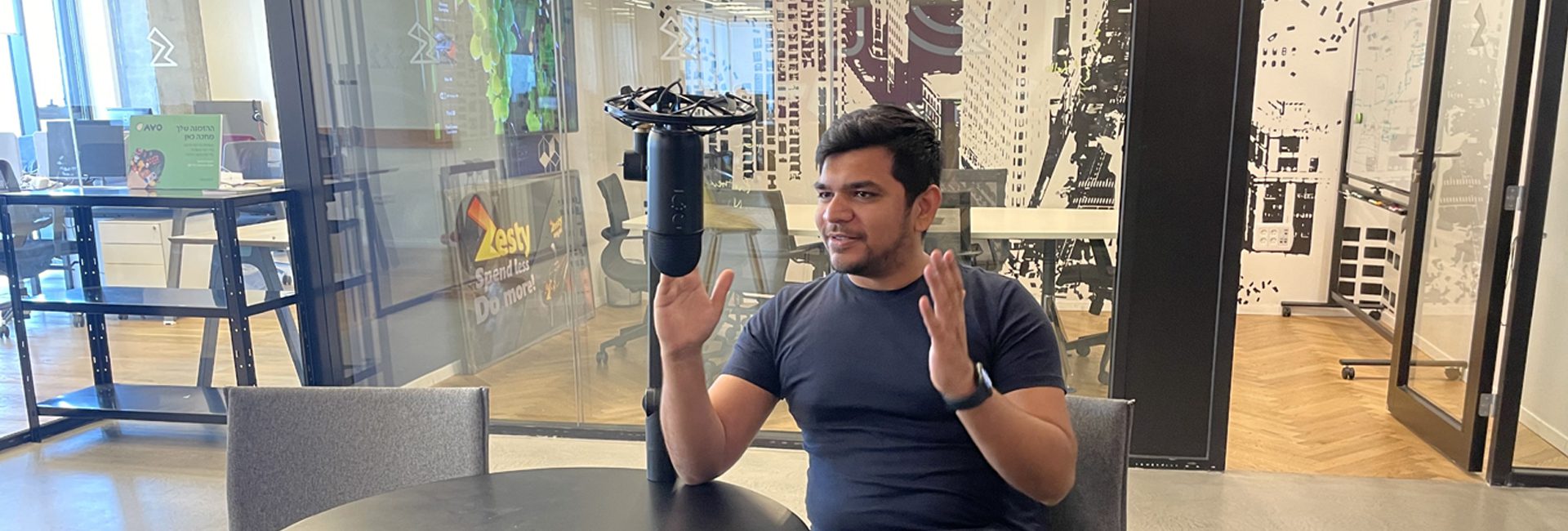

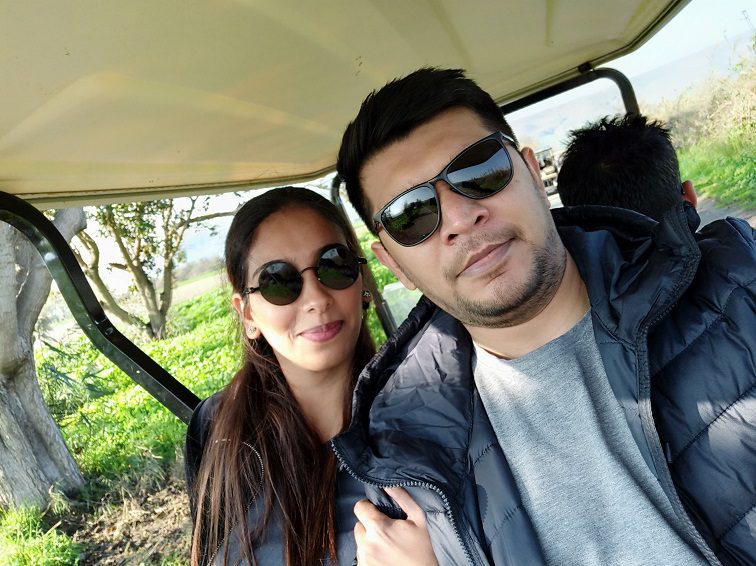 Pratik with his wife, Nancy[/caption]
Pratik with his wife, Nancy[/caption]

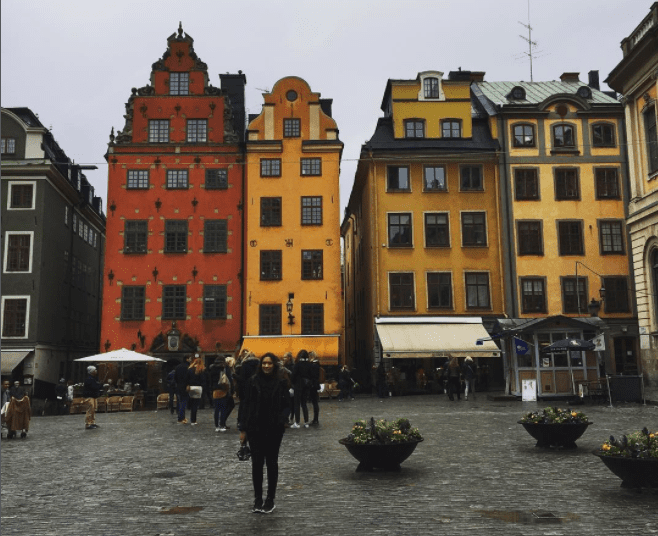

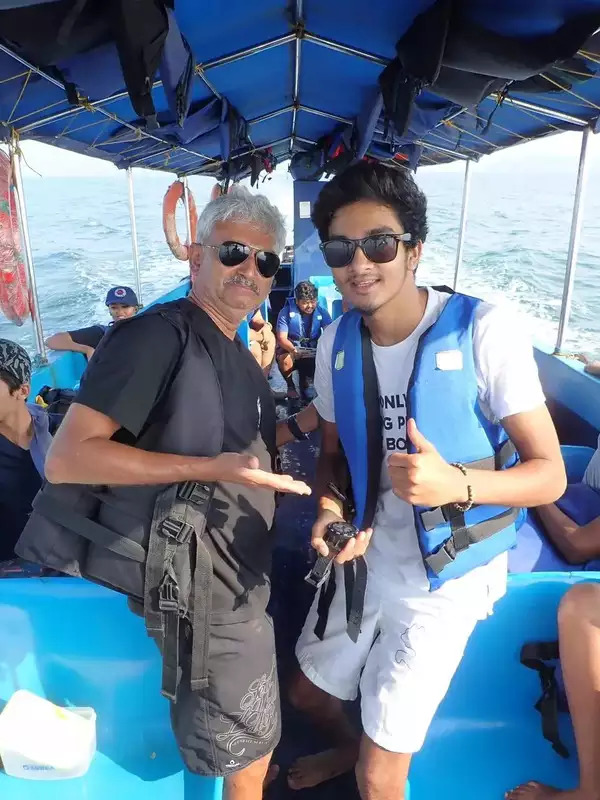
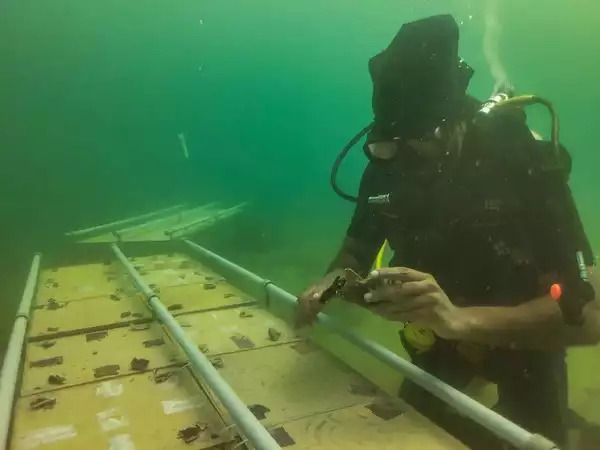

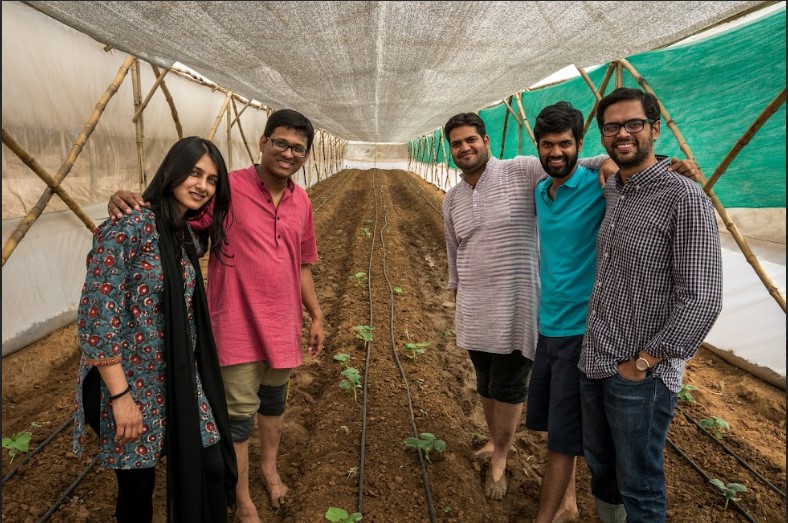 Team Kheyti[/caption]
Team Kheyti[/caption]
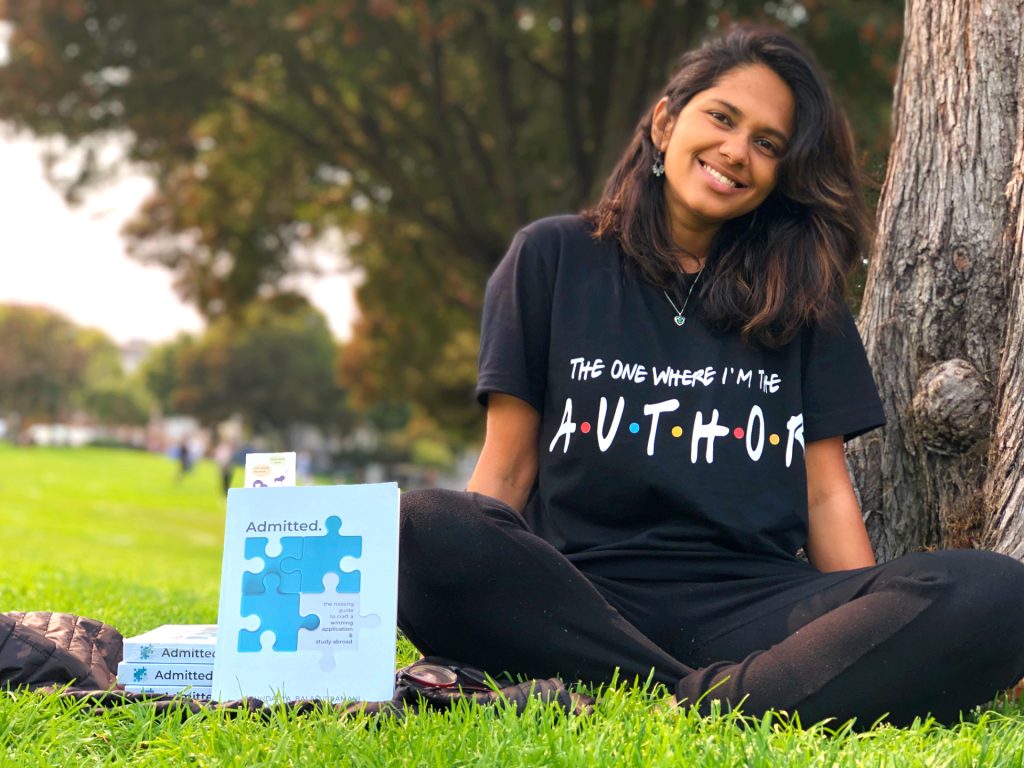
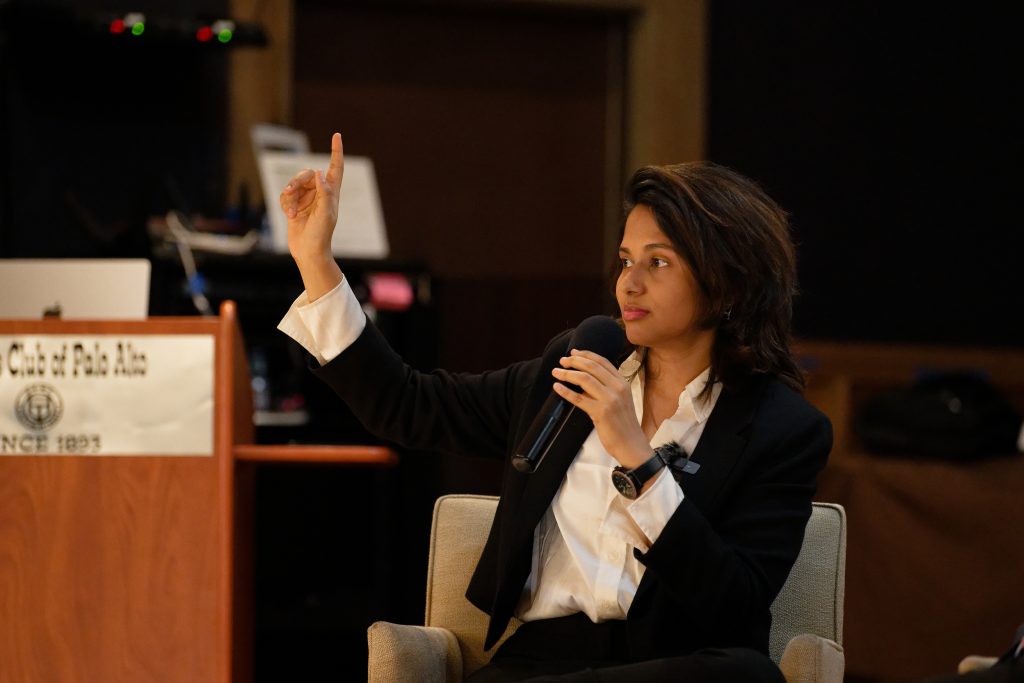 Soundarya Balasubramani[/caption]
Soundarya Balasubramani[/caption]